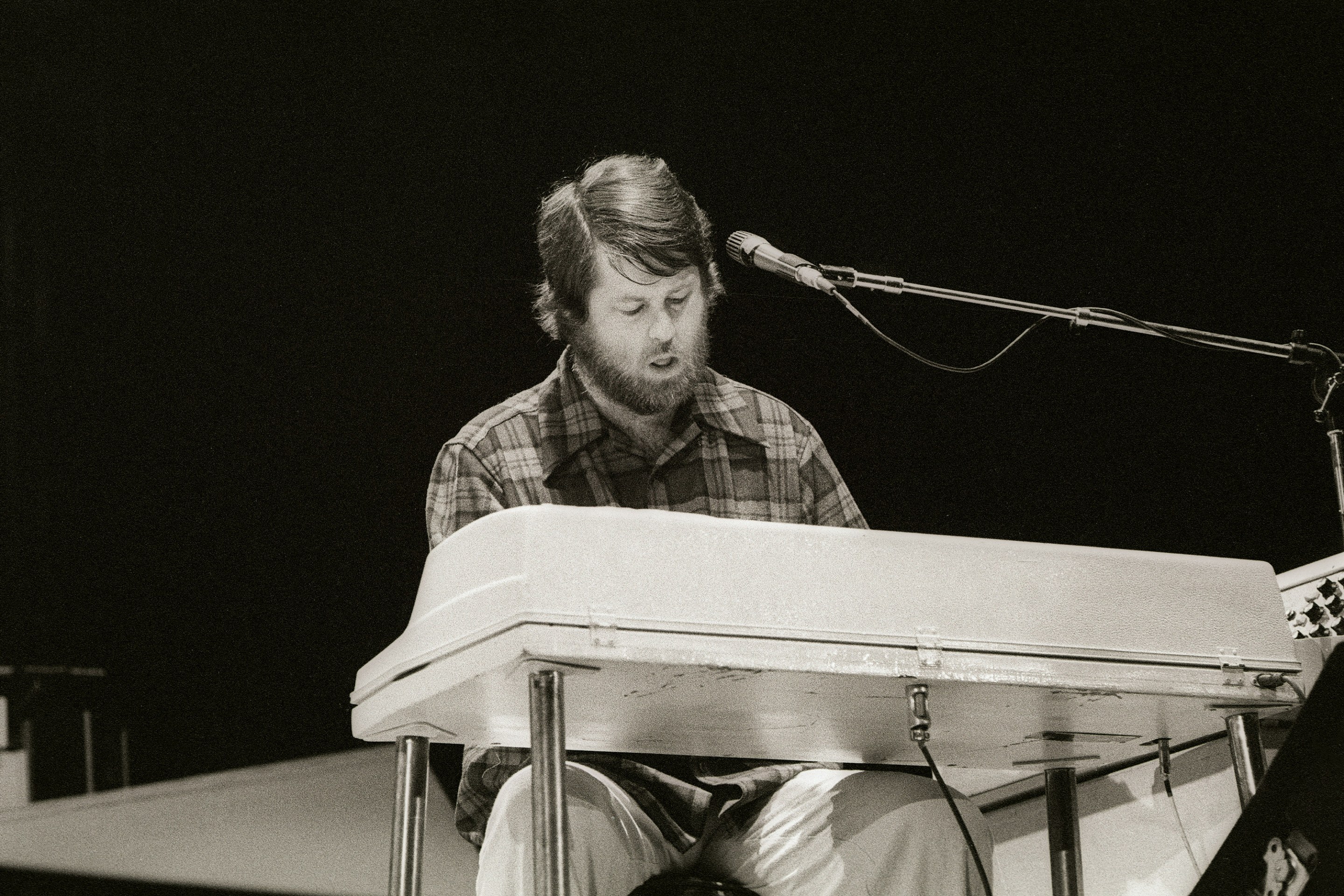It's impossible for me to think about Brian Wilson, who died on Wednesday, without picturing myself awake in my teenage bedroom at some sort of goblin hour. I still have very late nights, but they look a lot different—healthier, more organized. If I lose sleep now, it's because I'm so busy. If I lost a lot of sleep then, it was ... well, I guess you'd just call it anxiety. I wouldn't be able to sit still, or relax my brain, because my body just didn't want to shut off. I'd write jittery little poetry in my notebook, and pace around what little space I had, and listen to the Beach Boys.
I don't remember a specific moment where I was introduced to them, but at some point in my teen years, as I developed both taste in music and an interest in drugs, I got a burned-CD copy of Pet Sounds. Rounding out the collection soon after was the download of a sprawling Beach Boys greatest hits album from the library, and a more questionably obtained digital copy of The Smile Sessions, a big set devoted to the almost mythical, partially failed studio work that followed up the band's arrival on the absolute cutting edge of modern pop. That was my Beach Boys canon, and there were a few tracks in particular that I'd cycle through again and again when it felt like nobody else was awake. "Surf's Up," a delicate piano ballad that flips the whole fun-loving simplicity of the group's signature tunes on its head. "Caroline, No," a plaintive longing for eternal love. And of course, "God Only Knows," this divine wind that blows into your ears and leaves you (or at least me) forever changed, stunned by the possibility of melody and arrangement. I'd listen to these and write, but maybe more often I'd listen and just focus intently on them, my unslowing brain wrapping itself around every note. Hearing Wilson's songs, I felt separate from the world I knew.
Lying in bed, listening and relistening to Brian Wilson's '60s output, is a common enough experience that Barenaked Ladies made a (very good) song about it. When you do that, you're not just enjoying the music; you're also imagining the possibility of something even greater—something your ears can't quite reach. That longing, that frustration, is built into the work: Wilson was famous for writing some of the greatest songs in American history, but he was also nearly as famous for not writing some of the best music never recorded.
He came close, though. "California Girls" and the Pet Sounds tracks came after a nervous breakdown made him step back from touring. Then came an even grander, more ambitious step in "Good Vibrations." (I could listen to that quiet bit just before the outro for the rest of my life.) But then he never quite got what he wanted, musically, after that. Wilson, with unlimited time in the studio and access to whatever physical goods he craved, exhausted himself trying and failing to create his ideal vision on Smile, and neither he nor the Beach Boys were ever the same again. Wilson's later work, like the album The Beach Boys Love You, is singular but also kind of a shambles, uncannily innocent and overstuffed with partially executed ideas. The remainder of the band, to this day, still sells tickets off the back of "Surfin' U.S.A." and "Fun, Fun, Fun."
Wilson, separate from the Beach Boys brand anchored by Mike Love, eventually found a happier ending, I think, returning after a long time in the wilderness to live shows for a nostalgic all-ages audience. While he never regained the creative spark of the '60s, he held a timeless allure. It wasn't so much the fame, but that cursed label of "genius." For those who knew his story and connected the dots of his recordings, he was the guy who battled and almost defeated the concept of music itself, who desperately reached for something perfect and lost himself along the way.
I think everyone who loved Wilson had their own means of making sense of what happened after 1965. Their own story to tell. One of the boldest and best came from Jeanne Thornton, whose 2021 novel Summer Fun imagined a fictionalized Wilson as a closeted trans woman whose self-destruction was caused as much by the stifling gender norms of her time as the creative wall she hit. That's not to say that Brian Wilson, in any literal sense, fought against dysphoria, but the connection is closer than you might think. I've come to view my time in my teenage bedroom as a physical manifestation of a problem that I couldn't quite comprehend—that my body was something I needed to escape, and that my life had a flaw I had to identify and solve. There was something deep within me, I believe, that was guiding me toward the answer. It was intangible and restless. I didn't have the words to describe it, or any sense of how to get where it was trying to push me. But it kept me awake, and it kept me in close contact with Wilson's most astonishing efforts—his own fight to break the boundaries of what was thought possible. I can't say I listen to him anywhere near as often as I did now that I've freed that hidden longing. But I wonder if I would have gotten here without him.






